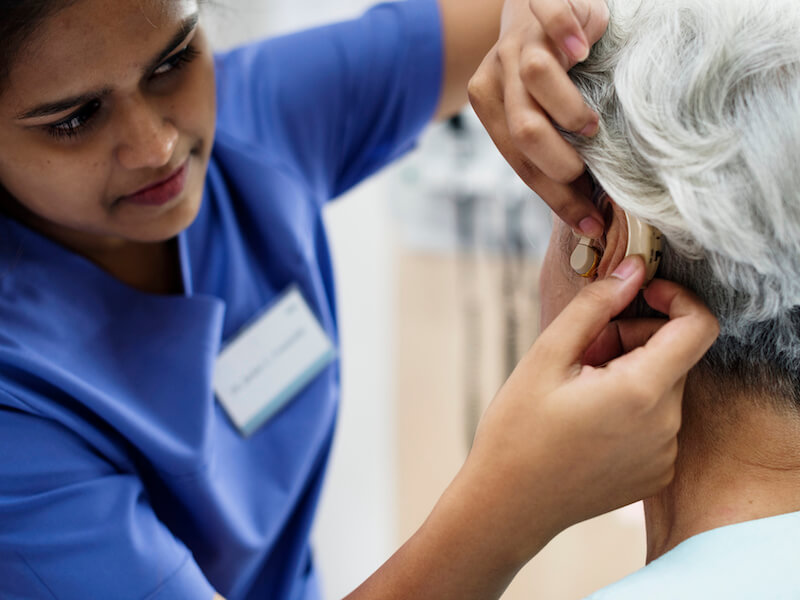Trouble hearing? Here’s how to know if your hearing aids need repair.
You take good care of your hearing aids. You baby them. Cleaning them daily, you make certain they are snug on their charger when you go to sleep.
That’s why it’s so discouraging that, suddenly and distressingly, your hearing aids aren’t working the way they should. Thankfully, there are some things you can do to resolve the problem. Keep in mind: your number one task is to avoid damaging your hearing aid further (or else replacing them might be required).
Troubleshooting Your Hearing Aid
Every design of hearing aid is different so use your owner manual for troubleshooting and maintenance. Here are a few things you can check on most models:
- Keep your microphone clear: Sometimes, the microphone can be blocked. Your hearing aid can sound broken or silent or have feedback if the microphone is blocked.
- Check your battery: Even if you’re sure your hearing aids spent the night on the charger, you’ll want to double-check the battery level. If your hearing aid has replaceable batteries, it may not be a bad idea to check if those batteries are in correctly or if a new one solves the problem.
- Wax accumulation: Inspect for wax accumulation which could be stopping the standard functionality of your hearing aids. Wax builds up quickly so even if you have a routine cleaning schedule you still need to pay attention to this.
- Check for noticeable damage: Check to see if there are any visible loose components or cracks around the shell of your hearing aid. Cracks, obviously, could indicate more extensive damage (or allow).
Each of these problems will have its own solution so consult your owner’s manual. Self maintenance will be possible in certain cases. (But, once again, consult the instructions.)
When Does my Hearing Aid Need Servicing?
Your hearing aid will probably require professional repair if you continue to have problems with it after performing these basic maintenance duties. That may not always seem appealing, after all, you depend on your hearing aid for everyday communication (along with dinners with your family, staying current with your favorite Netflix series, etc).
But it’s beneficial to recognize that repair doesn’t always mean sending your hearing aid out for repair. In some cases, we can fix it while you wait.
So in those cases, you will be able to get your hearing aid back in the same day (this is the reason why it’s a good idea to bring your hearing aid in so we can determine the damage).
Not all scenarios can be addressed in house though. A backup pair may be necessary in those situations. An old pair may be able to do an adequate job as a backup so if you have an old pair, bring them in with you. We might even have some we can loan you while you wait.
Get Assistance With Your Hearing Aids Sooner Rather Than Later
If your hearing aids are beginning to fade, the audio quality is beginning to fail, it’s important to get it repaired.
If you do this you will be more likely to eliminate any downtime. Your overall health and your mental health are impacted by neglected hearing loss. An even more significant concern is that your hearing will diminish as your hearing aids sit forgotten in a drawer.
The best way to keep your hearing healthy is to keep those hearing aids working. And the best way to do that is to clean them, keep them charged, and, when necessary, take your hearing aids to get some professional assistance.
[blogcta]

